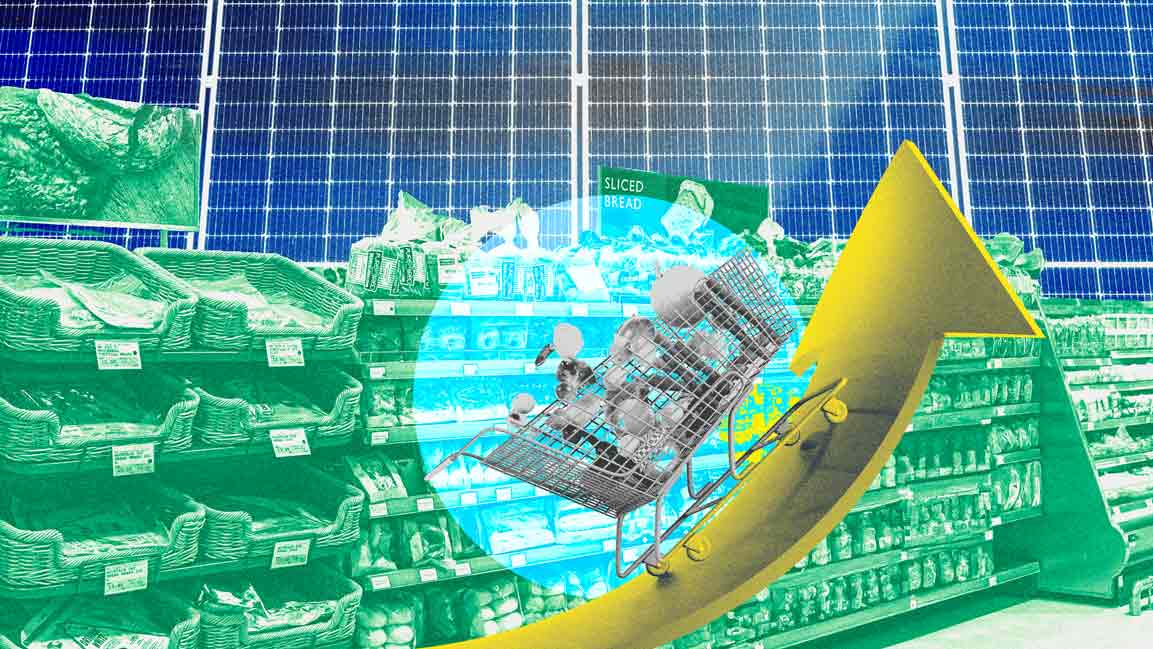- | 10:00 am
Will the MENA region be ready to meet the demand for green jobs?
A recent LinkedIn report states that the demand for green talent in UAE recorded a 10.4% growth while that in Saudi Arabia saw a 13.6% rise in a year

Amid an ongoing climate crisis, the planet’s future depends on our actions in the next ten years to mitigate and develop adaptation strategies.
It’s a challenge that has no quick fix. Transformation requires changes in every industry where green skills become part of every job like digital skills. Mirroring the global trend, several green jobs are being created in all sectors in the Middle East and North Africa (MENA) region.
World Bank economists believe the MENA region can be well-positioned to generate green jobs.
Meanwhile, a new LinkedIn report states out of the 48 countries monitored for the concentration of green talent, it found UAE recorded a 10.4% year-on-year growth in green talent, while Saudi Arabia saw a 13.6% rise. The overall green talent in an average country increased by 12% between 2022 and 2023.
However, the demand for green skills is expected to outpace the supply of skills quickly. The latest LinkedIn report shows that growth in demand for green skills is outpacing the increase in supply by twofold at least, and seven in eight workers currently lack even a single green skill.
Nabila Rahhal, Editor at LinkedIn News, writes that while there is a rise in the global workforce equipped with green skills, more is needed to meet the growing demand.
Between 2022 and 2023, the share of green talent in the workforce rose by approximately 12.3% across the 48 countries examined, while the share of job postings requiring at least one green skill grew nearly twice as quickly by over 22.4%.
NEED FOR GREEN JOBS AND SKILLS IN MENA
Experts say that businesses that invest in green jobs and create learning opportunities for employees to upgrade their skills can stay ahead of the curve and be relevant if they make the green transition.
“Businesses that can capitalize on these trends will thrive and will also allow MENA countries to localize many of the benefits of their climate actions,” said an expert from the World Bank in an email conversation.
Mayank Patel, Country Head Adecco Middle East & VP Sales EEMENA, says, “Green jobs can aid business growth in green markets, clean technologies, energy efficiency, and sustainable business practice. Businesses can save costs in the long run through reduced energy bills, lower waste management expenses, and enhanced operational efficiency. Investing in green jobs and fostering innovation, businesses can stay ahead of the curve, anticipate future trends, and position themselves as leaders in sustainable practices.”
He adds that the day is not far when roles related to energy efficiency, energy audits, building retrofits, energy management, and energy-efficient technologies will be highly in demand.
“Projects related to environmental sustainability will require professionals specializing in environmental management, conservation, and biodiversity. Construction and infrastructure will also see an increase in demand for professionals skilled in green building design and construction, sustainable materials, and smart city technologies.”
Experts at the World Bank add the MENA region has the highest potential in the world for electricity generation from renewable energy sources. The region’s future of green jobs and skills lies in exploring this potential.
Various green initiatives across waste management, research and innovation and various sustainability initiatives have led to demand for sustainability manager/coordinator, environmental specialist/manager, renewable energy engineer/analyst, corporate social responsibility manager, sustainable supply chain manager, social impact analyst, and more of such mid to senior level career opportunities.
DEMAND AND SUPPLY OF GREEN SKILLS
While the demand for green skills currently exceeds the supply, the MENA region is fast progressing to cultivate new talent and make youth future-ready for jobs in the renewable energy, climate-tech, finance, and sustainable solutions sectors. Experts opine that in the near future, green jobs will also become viable in sectors like construction or education that are not immediately recognized as “green”.
As MENA countries shift toward greener production methods, products, and services, the demand for green jobs will grow rapidly. They add that electricity generation from renewable energy, huge investments in green hydrogen and clean fuels, electricity distribution in modern grids, digital technology for clean energy, and the digital transition will create jobs along the respective value chains.
The World Bank’s Fall Gulf Economic Update states that if the GCC region progresses toward its renewable energy targets, 135,000 direct jobs could be created annually. A series of World Bank case studies further estimates that achieving 2030 targets in renewable energy and energy efficiency could deliver around 2 million net jobs by 2050 in Egypt and 760,000 in Morocco compared with business as usual.
“MENA recognizes the importance of sustainable development and environmental conservation. Some trends related to green jobs and skills in the Middle East include investment in renewable energy projects leading to a growing demand for professionals skilled in renewable energy technologies,” says Patel.
Citing the example of Jordan in the region, experts say that the country is progressing in its transition to renewable energy, providing stimulus through the construction sector.
The World Bank Group – Jordan Country Climate and Development Report states that over 5,000 people in Jordan work in renewable energy, mostly in electricity generation and water heating. At the same time, around 6,000 workers in the construction sector are engaged in upgrades such as greener lighting and other building improvements in energy efficiency.
WAYS TO CREATE GREEN JOBS IN MENA
A blog by three World Bank experts based on data collected in 2018-19 stated that while MENA holds immense potential for the rise in green jobs, the progress remained bleak in the pre-pandemic times. Countries in the region, however, seem to be making progress as more clean energy projects have grown.
According to the American Chamber of Commerce MENA Regional Council’s MENA-US Trade and Investment Report 2023, green and sustainable finance in MENA more than quadrupled to $18.6 billion in 2021 from $4.5 billion in 2020.
“We know that many countries are working to rapidly adopt solar and other sustainable energy solutions to diversify their energy mix. Jordan aims to reach 50% renewable energy by 2030, Morocco is on track to meet the 52% target by 2030, while the UAE, Oman, Bahrain, and Saudi Arabia have net-zero emission targets by 2050 and 2060, respectively,” said the World Bank experts, adding that despite this, the overall evidence for green jobs in MENA is still scarce.
They add that while the region shifts toward greener production methods, products, and services, the demand for green jobs will grow rapidly. But the lack of relevant green skills curtails the region’s progress.
“Developing appropriate skills will be key as the region decarbonizes. Without a concerted effort across education and training institutions—which should be closely linked to private sector demand—MENA might not have a qualified workforce for the promised green jobs,” said the World Bank expert.
To ensure the expansion of green jobs, businesses need to focus on climate-smart investments and create opportunities that will require them to shift their scope to green activities and gain expertise in this area. Policies in support of the green transition need to offer clear targets to be reached and set timelines for tax breaks to incentivize private capital from domestic and international investors.







































